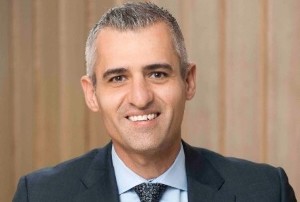
That was the message from George Stavliotis, a Sydne-based vice-president of Swiss Re, to attendees at the recent FSC conference in Auckland.
Stavliotis said the issue was very new and major health effects from climate change would probably not manifest until about 2080. But the life sector should prepare for impact in three main areas: heat, pollution and transmittable diseases. In particular, there would be an increase in cancers and cardio-respiratory conditions, meaning a higher number of health and disability claims.
There would also be mental health considerations - for example, people in some regions of Australia have suffered more than one flood in the past year. “The impact on these people in terms of mental health is something we need to start looking at as well.”
The other big change facing the life insurance sector is digitisation. Bringing more digital channels to market is the key to life insurance going forward, according to PwC partner Ben Coulter, who was part of a four-person panel set up at the conference to discuss the future of life insurance.
“What I want to see is the Sharesies or Hatch of life insurance,” Coulter said. “Offer insurance in little bundles and get people talking about insurance. Generally the life insurance industry in New Zealand has been very slow to adapt to technology. Even simple things like being able to go online and change your address. They tend not to offer that.”
Another panelist, Partners Life managing director Naomi Ballantyne, said her firm was trying to find a way to digitise the advice process as much as possible. She sees it as part of the education process for customers - a way of helping them to understand their financial life “before you can introduce the concept of what happens when it stops”.
“We are one-hundred percent behind digitally-supported advice but we also know there’s not one client that looks like another one, even if they are the same age and gender and they live in the same area….So the conversation about where insurance fits has to take all these things into account and the simplification of things is not sensible when the need is specific and very personal.”
Technology could also help build customer trust, Ballantyne said. “If you can see [something] on a computer, and you’ve put the data in and it spits the data back out and you can understand that’s you, the trust level goes up.” It’s far better than telling a client to “trust me”, she said. “It’s not your opinion. It’s supported effectively by logic and science.”
Karen Stevens, the insurance and financial services ombudsman, says digitisation might help financial advisers to keep better records, meaning they had some basis “other than the back of a napkin” for working things out for their clients.





Comments
No comments yet.
Sign In to add your comment